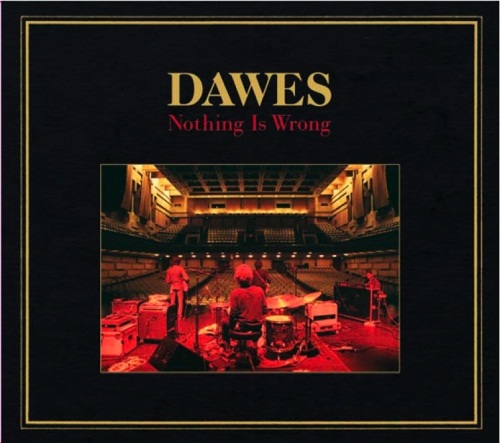Videos by American Songwriter
Dawes
Nothing Is Wrong
(ATO)
[Rating: 3.5 stars]
Native sons of Southern California, the boys of Dawes have carved themselves a niche in contemporary roots rock by recreating and updating (but just barely) the classic folk-rock sounds of ‘70s Los Angeles. The band’s 2009 debut, North Hills, earned them kudos from both contemporary audiences and fans of old-school AOR. So seamlessly authentic is their retro-cred that they were chosen by both Robbie Robertson and Jackson Browne as respective backing bands for several 2010/11 concert and television appearances. Frequent comparisons to their West Coast compatriots Fleet Foxes and Band of Horses are slightly misleading, as they are not quite as oddball as the former, and arguably more polished and song-oriented than the latter.
On this likeable second album, the band teams up once again with producer Jonathan Wilson, a linchpin in the current Laurel Canyon folk-rock scene. As with the debut, Wilson recorded Dawes mostly live onto glorious two-inch tape, capturing the quartet’s vibrant musical rapport and chops, honed from the relentless tour schedule they adopted to promote North Hills. Many of these songs were written on the road and hashed out on live stages.
The result is a refreshingly straightforward, unfussy set of songs that is as tuneful and fully-realized, if not as slick, as any of the material it models itself after.
Hints of Crosby, Stills & Nash harmonies, Eagles country-pop stylings, and J. D. Souther songcraft echo through their work. Adding to the sense of déjà vu (no pun intended) is singer Taylor Goldsmith’s resonant tenor that strongly resembles the vocals of the aforementioned Browne, particularly on lilting folk numbers like “Moon In The Water,” whose bewitching ascending melody resolves into one of the catchiest choruses on the album. (Browne also provides guest vocals on the lovely Springsteen-esque “Fire Away.”)
The mournful “So Well,” “Million Dollar Bill,” (which will be familiar to fans of Goldsmith’s side project Middle Brother) and “Little Bit Of Everything” (a meditation on the multilayered motivations that drive people) betray a strong Band/Grateful Dead influence, and the spirit of Gram Parsons infuses the gorgeously hazy “Time Spent In Los Angeles,” which features Benmont Tench on organ, reinforcing the old-school vibe.
The quartet seems most comfortable with sad country-folk ballads, so the instances where they come alive are particularly rewarding. “The Way You Laugh” is a feisty mid-tempo shuffle with stirring suspended fourths and a great hook. The bouncy “Coming Back To A Man” allows drummer Griffin Goldsmith to strut his stuff, and “If I Wanted Someone” displays a bit of Crazy Horse guitar grit.
“How Far We’ve Come” is a country-rock anthem of unfettered joy whose conga-laced percussion may inspire Black Crowes associations, although the lyrics take on heavy existential questions about seasons and cycles, hypothesizing that “The only point of clocks and maps/The only point of looking back/Is to see how far we’ve come.” Mining the ‘70s canon to create what may be the definitive sound of the ‘10s, Dawes demonstrates this trick of perspective and history. It may not be everyone’s idea of “coming far,” but Dawes’s second album succeeds on its own terms, and will appeal to fans of solid roots-rock songwriting.










Leave a Reply
Only members can comment. Become a member. Already a member? Log in.